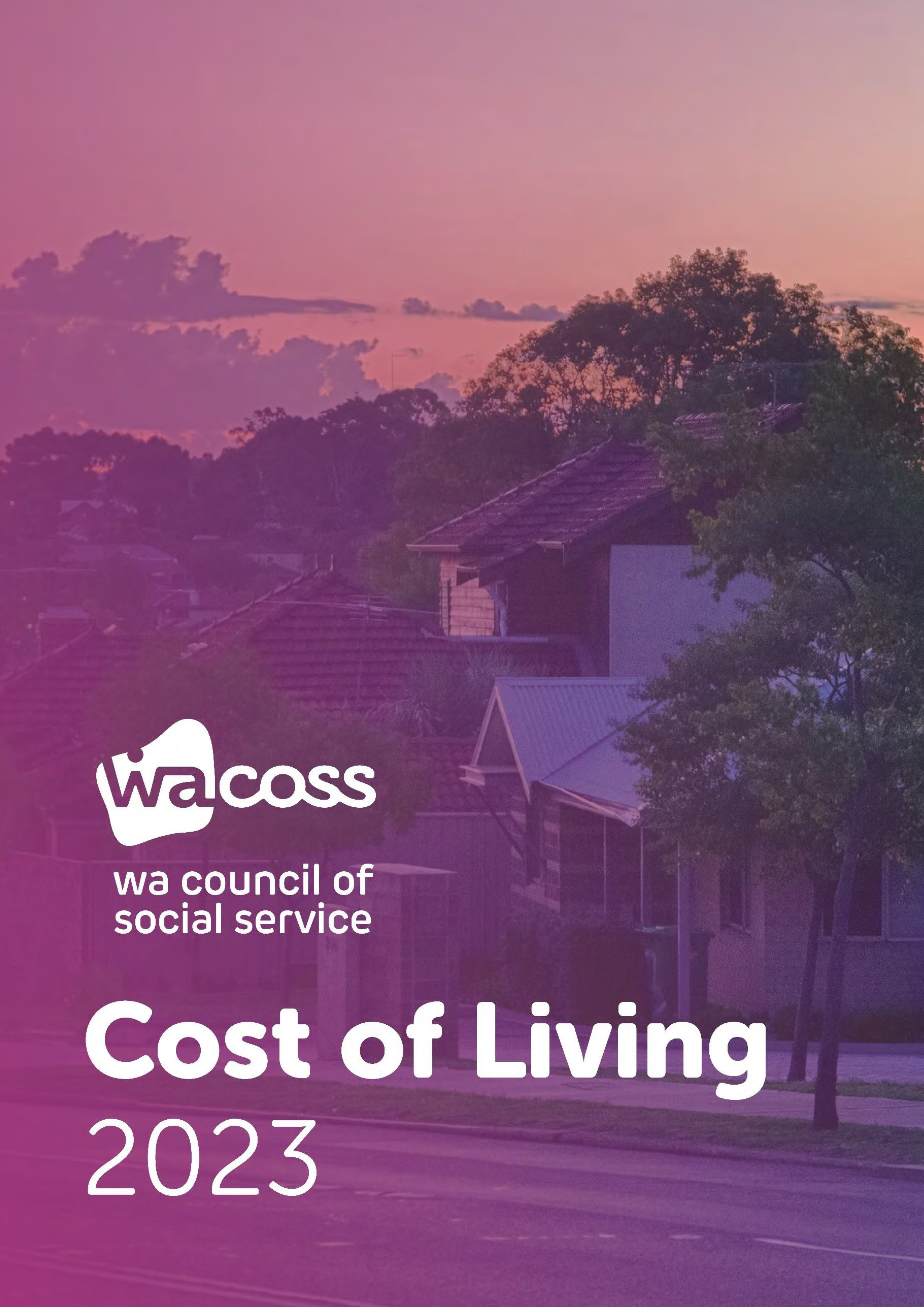Reports from frontline community sector organisations make it very clear that people in Western Australia are feeling the pressure of wage inequity and increasing costs. Supermarket chains are posting record profits, at the same time that many people are struggling to cover the cost of groceries. Likewise, banks see their profits balloon, while households fall further behind. Interest rates keep on rising and rental prices continue to skyrocket, making it harder for people to keep a roof over their heads.
Western Australian community services have reported that inadequate access to safe and secure housing is the face of this cost-of-living crisis, with large numbers of clients in private rental arrears due to significant rent increases. One service reported to WACOSS that a client had their rent increase by $200 per week. Unable to cover increasing rental costs, households are reaching out for support, with demand for emergency relief funds to cover arrears rapidly growing.
The community should be able to have confidence that the rental market will provide liveable, affordable, and stable housing where people can happily make their home. Instead, we have a rental system in crisis. When considering the current rental market, it is important to recognise that this crisis is a crisis for renters. For landlords, our current rental system is a dream state, where they have free rein to hike rents as much as they please, with little consequence due to the supply-demand imbalance and a lack of regulation around those increases.
The support provided to households by the State Government to date, such as electricity credits, has been unable to keep up with the scale of rental increases that burden tenants. While the WA Government’s new rent relief scheme – due to commence in January 2024 – will support tenants facing immediate eviction due to rental arrears, it will not address the issue of price rises. To do that, direct state intervention is needed. It requires the State Government to:
- reform and rebalance the rental system to better protect the rights of tenants.
- stabilise rental increases, and place a cap on rents that limit increases to no more than the Consumer Price Index.
- commit to significant and sustained investment to increase the stock of public and community housing.
The Federal Government has a key role to play too. The recent industrial relations reforms will be critical in improving the position of low-paid workers, but more needs to be done. Now is not the time to go through with the Stage 3 tax cuts. Rather, that $320 billion over 10 years could be used to increase JobSeeker and other income support payments. Further, the Federal Government should take action to address potential price-gouging by supermarkets in the midst of a cost-of-living crisis.
This year’s Cost of Living Report outlines the impact of increasing costs on families and communities and offers a call to action – asking communities and government to support change for the common good and stand strong against opposition rooted in self-interest. Responding to this call is the only way we can create a Western Australia where all families, communities and individuals can thrive.
Read the WACOSS 2023 Cost of Living Report
Read the WACOSS 2023 Cost of Living Snapshot
Authored by: Graham Hansen, Senior Policy Officer and Emily Hull, Senior Policy and Project Officer, WACOSS.



